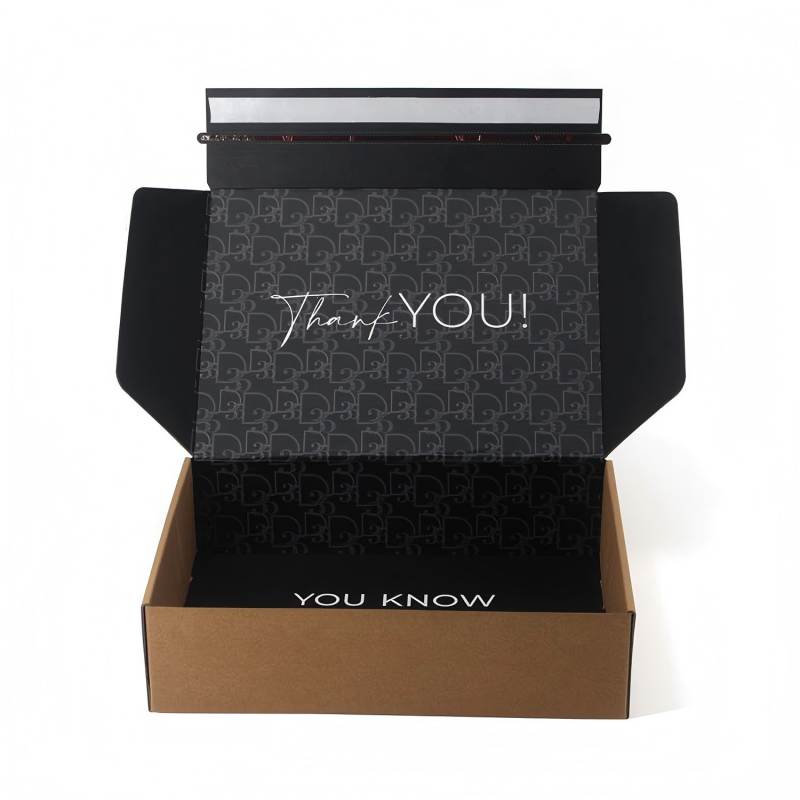Material Composition and Quality Control
The strength and durability of Heavy Cartons largely depend on the materials used in their construction. A crucial element is the type of paper utilized. Typically, cartons are made from a fluted layer sandwiched between two flat liners. This design provides structural integrity and resilience. The paper used for these liners is often Kraft paper, known for its high tear resistance and strength. Manufacturers in China, especially those focusing on wholesale production, prioritize sourcing high-quality raw materials to ensure consistent product quality.
Kraft Paper and Recycled Materials
Kraft paper is predominantly made from wood pulp, providing robust tear resistance. Many manufacturers also incorporate recycled materials, which play a key role in sustainability without compromising durability. This balance is essential for manufacturers looking to meet eco-friendly standards while ensuring product strength.
Quality Control Measures
Quality control is integral to manufacturing durable cartons. Various tests, including monitoring the grammage and moisture content of the paper, are conducted to maintain consistency in material quality. Keeping precise parameters ensures the reliability of the cartons in real-world applications.
Structural Design and Engineering
The structural design is a cornerstone in ensuring the strength of heavy cartons. This involves engineering the carton to withstand the pressures of stacking and transportation.
Single-Wall vs. Double-Wall
Different applications require varying levels of strength. Single-wall cartons are suitable for lighter items, while double-wall cartons offer enhanced durability for heavier loads. In some cases, triple-wall options are used for extraordinarily heavy goods.
Role of Flutes
The fluted layer within the carton is critical for distributing weight evenly and providing significant resistance to pressure. The commonly used flute types include A, B, C, E, and F, each offering specific benefits like cushioning, stacking strength, or crush resistance.
Adhesive Types and Application
The type and application of adhesives significantly affect the durability of heavy cartons. Adhesives must hold the material together under various environmental conditions, ensuring the carton maintains its structural integrity.
Moisture and Temperature Resistance
Manufacturers use adhesives that can withstand moisture and temperature changes. This is especially crucial for products shipped across diverse climates, as fluctuations in these conditions can degrade adhesive quality.
Common Adhesive Types
- Starch-based adhesives: Ideal for standard applications, offering a good balance of cost and performance.
- Synthetic adhesives: Used when higher moisture resistance is required.
- Hot melt adhesives: Known for strong bond strength and quick setting times.
Box Geometry and Construction Techniques
The geometry of a box plays a significant role in its strength and durability. Thoughtful construction techniques ensure that the carton can handle stress without deforming or collapsing.
Joint Construction
Joining methods, such as gluing, stapling, and taping, each have their merit, depending on the required box strength and usage scenario. For heavy cartons, reinforced staples or high-strength adhesives are often used to fortify joints.
Score Lines and Creases
Score lines and creases need precision to facilitate easy folding without compromising integrity. Properly aligned scores improve foldability and contribute to the box’s overall durability.
Coatings and Surface Treatments
Coatings further enhance a carton’s durability, providing additional protection against environmental factors and mechanical damage.
Water-Resistant Coatings
For applications involving exposure to moisture, water-resistant coatings ensure that the carton retains its strength and doesn’t degrade.
Specialty Treatments
- Flame-retardant coatings: Used in industries requiring enhanced fire safety.
- Anti-static treatments: Essential for electronic goods to prevent static damage.
Testing Methods to Ensure Strength
Before reaching consumers, heavy cartons undergo rigorous testing to ensure they meet strength and durability standards.
Bursting Strength Test
This test, measured in kilograms per square centimeter, assesses the carton’s ability to withstand internal pressure. It’s crucial for determining a box's toughness against force.
Edge Crush Test (ECT)
The ECT assesses the stacking strength of a carton. Measured in pounds per lineal inch, this test ensures the box can support weight when stacked, crucial for storage and transit.
Customization for Specific Industry Needs
Customization allows manufacturers to tailor cartons to specific requirements, enhancing their application across various industries.
Industry-Specific Features
The food industry, for example, might prioritize hygiene and freshness, opting for food-grade materials. Alternatively, electronics companies require anti-static features to protect sensitive components.
Printing and Branding
Customized printing serves as both a marketing tool and a functional necessity, providing handling instructions and promoting brand identity.
Sustainable Manufacturing Practices
With growing environmental awareness, manufacturers are adopting sustainable practices to reduce their carbon footprint while maintaining product strength.
Use of Recycled Materials
Incorporating recycled materials is a key strategy for sustainability. Manufacturers balance the use of recycled content to ensure cartons are both eco-friendly and durable.
Biodegradable and Water-Based Components
Using biodegradable adhesives and water-based inks enhances the sustainability profile of cartons, aligning with eco-conscious consumer demands.
Innovations in Packaging Technology
Advancements in packaging technology continuously improve the strength and functionality of heavy cartons, making them more efficient and reliable.
Automated Manufacturing Processes
Automation ensures precision in cutting, folding, and assembling cartons, leading to higher consistency and quality control.
New Material Development
Research into alternative materials, like agricultural waste fibers, is paving the way for more sustainable and robust packaging solutions.
Choosing the Right Manufacturer
Working with a reputable manufacturer is crucial for obtaining durable cartons that meet specific requirements at a cost-effective rate.
Evaluating Production Capabilities
Assessing a manufacturer’s production capabilities, experience, and compliance with environmental regulations ensures that businesses receive high-quality products.
Cost Considerations
Bulk purchasing from wholesale manufacturers often results in cost savings. Manufacturers in China, known for their competitive pricing, offer substantial economic benefits without sacrificing quality.
HAIRI PACKAGE Provide Solutions
At HAIRI PACKAGE, we offer tailored solutions for durable and strong carton packaging. Our focus is on optimizing material strength and structural design while ensuring sustainability through the use of recycled materials and eco-friendly practices. We provide customized options to meet the specific needs of various industries, whether you require moisture-resistant coatings or anti-static treatments. By choosing HAIRI PACKAGE, you gain a partner committed to delivering high-quality, cost-effective packaging solutions that support your business's logistics and environmental goals.

Post time: 2025-08-19 17:29:21


